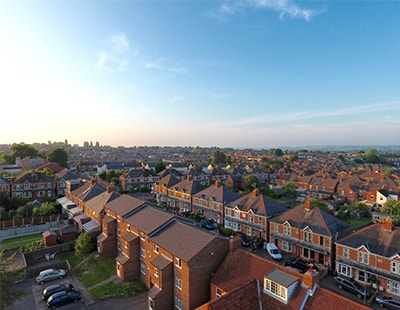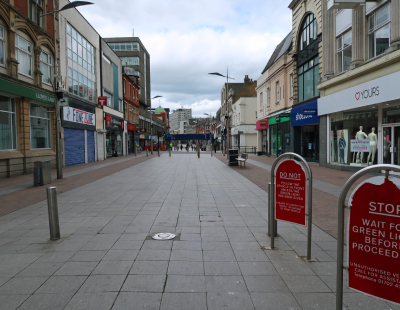The global head of Lendlease has called for an end to what he has described as an often unhealthy and politically charged approach to the regeneration of major cities.
Steve McCann, in a speech to business leaders, called for change and said that his industry has a responsibility to leave a positive legacy for future generations.
McCann, the boss of the international property and infrastructure business, which is headquartered in Sydney but with an £18.8 billion development pipeline of work within Europe, said increasing urban migration is leading to major social and environmental challenges. And, further to this, he argued that the complexity of those challenges lies well beyond the power of any individual, community, company or government to solve on its own.
According to McCann’s philosophy, large-scale and mixed-use developments that attract vibrant communities can help address the challenges posed. He also believes, though, that big firms involved in this type of project must always bear in mind their social responsibilities.
In London, the Mayor Sadiq Khan is of the belief that the UK’s capital city needs to build 66,000 new homes a year to keep up with demand, with every single one of these homes requiring energy, water, digital connectivity and transport links. Without a long-term plan to provide that infrastructure, McCann claims that our cities will falter.
“While everyone agrees on the scale and urgency of the problem, very few agree on how to solve it,” McCann said in his speech to the Australian-British Infrastructure Catalyst.
“Private companies, government and communities are all too often at loggerheads, locked in unhealthy battles played out in traditional and social media, and the dialogue is frequently polarised and politically charged.”
His vision is for a more collaborative approach. “We need to recognise that no-one builds anything substantial alone. So much is changing – social, political, economic, cultural norms that have been in place for decades or even centuries are being swept aside.
“But one thing will never change – the fact that when people or organisations come together – from within business, communities and governments - identify their common interests, look beyond the immediacy of their own needs and collaborate, then and only then can we achieve what is necessary and begin to imagine what might really be possible.”
McCann pointed to two major Lendlease projects, located on opposite sides of the world, which both aspire to meet those ideals. At Elephant Park in Elephant & Castle, South London, Lendlease is currently approximately halfway through the delivery of thousands of new homes alongside a whole range of community amenities and infrastructure – including a low carbon energy centre and district heating system.
The energy centre is set to become a hub for the local community, as it will include a new nursery, community café and children’s playground.
McCann also highlighted how very early in the life of the project his team realised the strength of local feeling around the mature trees that had been earmarked for removal – with this in mind, he said his team redrew the masterplan to keep as many of the trees as possible, while creating a large new park in Central London (the city’s largest for 70 years).
In addition, McCann’s speech referenced the Barangaroo South project in Sydney where the government called ‘on the placemaking, delivery and capital management expertise of the private sector’ to help transform a large tract of contaminated industrial land.
Delivery of ‘a vibrant new part of the city’ is now well underway and, once complete, Barangaroo is set to be one of the first developments of its size to be climate positive and carbon neutral – crucial in a world where environmental issues have increasing priority.
In the Barangaroo development, roof-top solar panels are being used to generate energy for public lighting, rainwater is being harvested to ‘help the gardens thrive’ and all operational waste is either reused or recycled.
Lendlease, which has more than 11,000 employees worldwide, is currently engaged in 21 major urbanisation projects in ten global cities.










.png)









Join the conversation
Be the first to comment (please use the comment box below)
Please login to comment